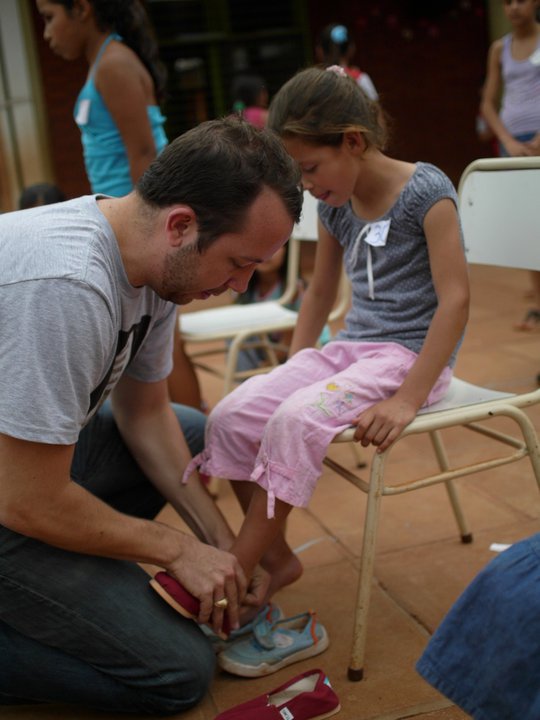 I had the itch to play kickball in the park. I suggested to a friend of mine that we should organize a game. He thought it was a great idea and then said, "And we should do it to raise money for a charity!" And, while I am always up for doing a little good, I just wanted to play kickball.
In a recent article on the Harvard Business Review, Dan Pallotta makes the claim that Steve Jobs was the World Greatest Philanthropist even though very little is known of his actual charitable contributions. Mr. Jobs did not have a huge foundation like fellow technology titans like Bill Gates. He didn't have a foundation at all. He did in 1985 but then shut it down because he didn't have the time and effort to devote to being the best at giving away money.
I had the itch to play kickball in the park. I suggested to a friend of mine that we should organize a game. He thought it was a great idea and then said, "And we should do it to raise money for a charity!" And, while I am always up for doing a little good, I just wanted to play kickball.
In a recent article on the Harvard Business Review, Dan Pallotta makes the claim that Steve Jobs was the World Greatest Philanthropist even though very little is known of his actual charitable contributions. Mr. Jobs did not have a huge foundation like fellow technology titans like Bill Gates. He didn't have a foundation at all. He did in 1985 but then shut it down because he didn't have the time and effort to devote to being the best at giving away money.
"In order to learn how to do something well, you have to fail sometimes...the problem with most philanthropy-there's no measurement system.. you can really never measure whether you failed or succeeded...So...it's really hard to get better."
In this same article, Mr. Pallotta makes an observation about the crop of recent college grads that are obsessed with "social good."
"Our youth are growing up with the strange notion that the only way to make a big difference in this world, or to be of service, is to work for a nonprofit organization, or become the next Bill Gates and establish a private foundation, or to start some kind of "social enterprise," often without any understanding of what that means."
I remember when I graduated in 2004, just about everyone I knew in the business school had an idea for the next best coffee shop. Each and every business plan bore the personality of its author and all but one (check out WellCoffee) never made it off the powerpoint deck. In the same way, I am seeing socially conscious business plans flying left and right these days. Every idea has a social good hook. Every conversation about building something new has some intention of giving back being built into the core mission and P&L statements. And any time people are thinking about how to make a bigger impact, that is a good thing.
 What is not a good thing is when that added layer of good intentions gets in the way of the underlying value that the organization or business was built to create. The point of building a business is to provide a product or service that is of value to the world. If there is good that can be done on top of that, terrific. Think about TOMS Shoes. While it is absolutely awesome that for each pair of shoes that you buy a pair of shoes is given to kids in need around the world, the reason it works is because TOMS Shoes are awesome shoes. If the shoes sucked, I would have bough one pair, gotten my social good credit for the semester, and never bought the next 5 pairs I own.
What is not a good thing is when that added layer of good intentions gets in the way of the underlying value that the organization or business was built to create. The point of building a business is to provide a product or service that is of value to the world. If there is good that can be done on top of that, terrific. Think about TOMS Shoes. While it is absolutely awesome that for each pair of shoes that you buy a pair of shoes is given to kids in need around the world, the reason it works is because TOMS Shoes are awesome shoes. If the shoes sucked, I would have bough one pair, gotten my social good credit for the semester, and never bought the next 5 pairs I own.
The energy, excitement, and brainpower that is flowing around "social good" right now is terrific. But, the movement is approaching a tipping point and there is a level of saturation that I believe the marketplace is approaching. In the same way that 5 years ago, there was a significant push to "green wash" the business world and people became immune to noticing, the "good washing" may share a similar fate. Or worse yet, the job and value creating companies that intended to also do good will never get launched in the first place.
Kinda like that game of kickball I wanted to play.






